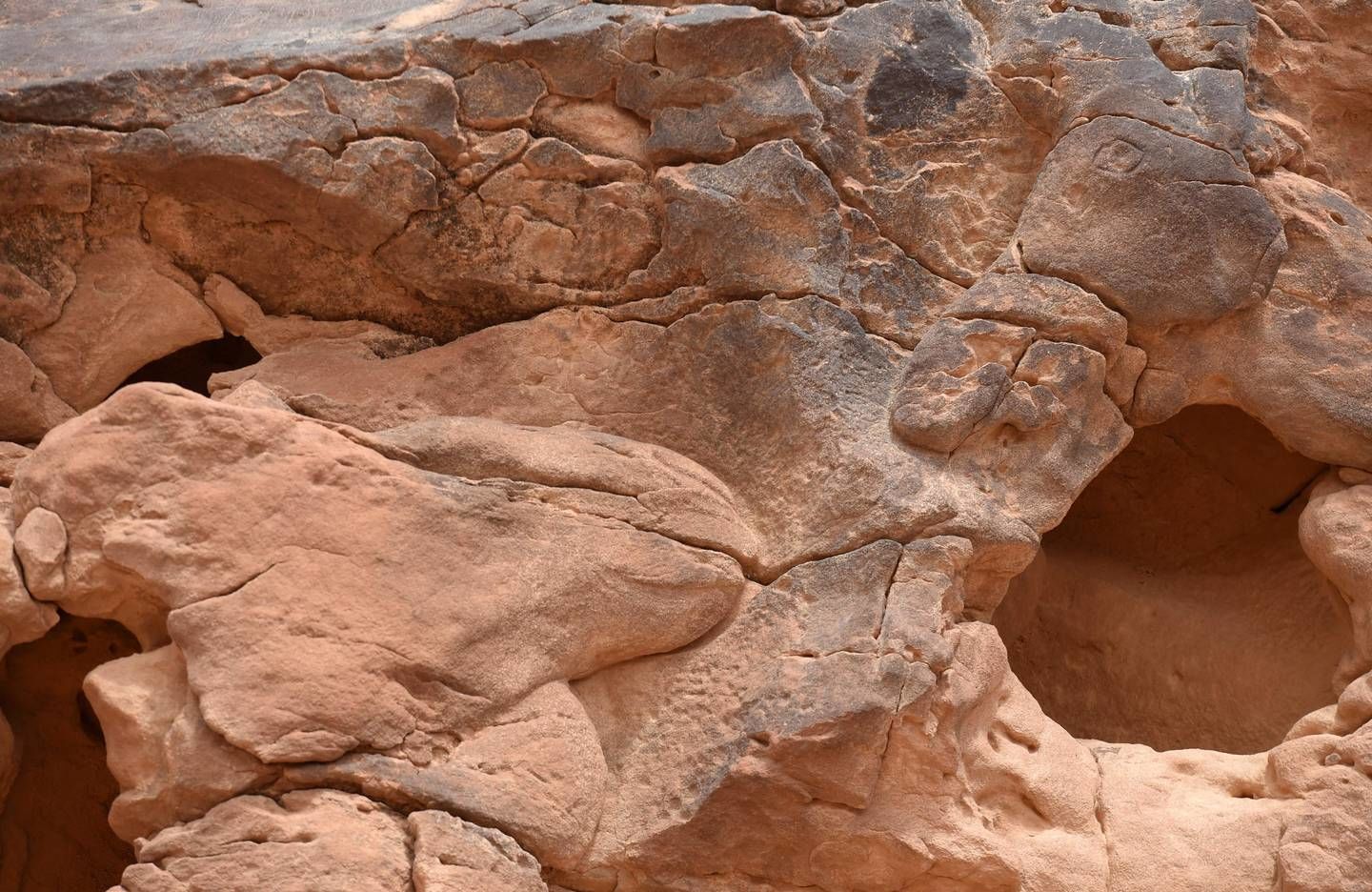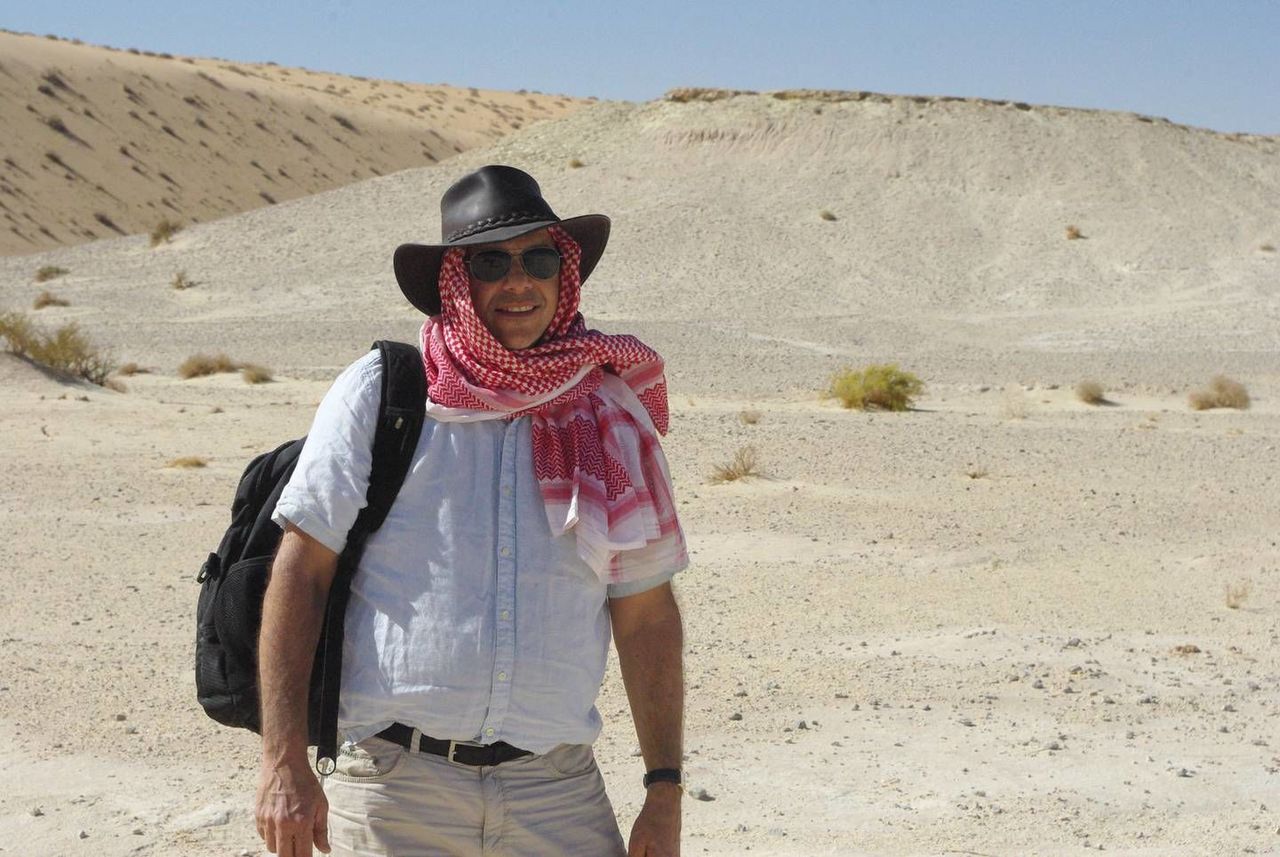
Saudi Arabia could have ‘hundreds of thousands’ of archaeological finds
Hundreds of thousands of undiscovered and undocumented archaeological sites exist in Saudi Arabia, experts have said.
It comes amid reports that the kingdom’s cultural sector could contribute $23 billion to the country’s economy, creating more than 100,000 jobs in the next decade.
In September, camel carvings in the northern province of Al Jouf, discovered in 2018 and formerly thought to be 2,000 years old, were found to date to about 6,000 BCE, making them older than Egypt’s pyramids.
They are the oldest known surviving large animal rock sculptures in the world, a study published in The Journal of Archaeological Science found.
Guillaume Charloux, of the French National Centre for Scientific Research (CNRS), told The National the findings were “unparalleled in Arabia”.
“We did not expect to find such treasure,” he said. “It was a real, complete surprise when I discovered the site in 2016 with the help of Husayn Al Khalifa from the former SCTH [Saudi Commission for Tourism and National Heritage].
“Such monumental camels carved in the rock are absolutely unique and unparalleled in Arabia and the Near East, and are even more astonishing since our new dating of the camel site to the prehistoric era.
“We have not yet understood all aspects and significance of the camel site, in terms of symbolic value, artistic talent and technical level, also the artists and their motivations.”
 The site of an archaeological discovery about eight kilomtres
north of the city of Sakaka in Saudi Arabia's northwestern Al Jouf
province, with a carved sculpture of a camel's head seen on the right.
The site of an archaeological discovery about eight kilomtres
north of the city of Sakaka in Saudi Arabia's northwestern Al Jouf
province, with a carved sculpture of a camel's head seen on the right.
Mr Charloux said many engravings of large camels had been found recently in northern Arabia and that this long-term rock art tradition needed further study.
“This unique phenomenon related to such an impressive mammal needs to be properly put into perspective now,” he said. “We have to link all these camels, the earliest being possibly the camel site in Al Jouf, [and] the latest the Nabataean camel sculptures in the Siq at Petra.”
Saudi Arabia has an extraordinary and rich archaeological record, with proper scientific analysis of undocumented sites expected to take many decades of research efforts, Prof Michael Petraglia of the Max Planck Institute for the Science of Human History told The National.
In May this year, more than 1,000 mustatils – prehistoric stone structures – were discovered as part of a major archaeological project.
Mustatils are said to be the earliest human-made stone monuments in the world and could date back more than 7,000 years, and those from the pre-Islamic period had not previously been analysed scientifically in the field.
“Given that there are many thousands of mustatils, it will take many years to understand their true function and their precise role in Arabian societies,” Prof Petraglia said.
“Our team has hypothesised that mustatils are part of monumental landscapes, constructed as a product of repeated rituals by pastoral peoples residing in challenging environments.”
 Michael Petraglia at the site of an ancient buried lake in the
Nefud Desert, in the north of the Arabian peninsula. Picture courtesy of
Michael Petraglia.
Michael Petraglia at the site of an ancient buried lake in the
Nefud Desert, in the north of the Arabian peninsula. Picture courtesy of
Michael Petraglia.
Prof Petraglia predicted “there are hundreds of thousands of undiscovered and undocumented archaeological sites in Saudi Arabia”.
A Saudi-Austrian team recently revealed new findings on a site in Qurayyah, north-western Saudi Arabia, at which archaeological work started in 2014.
The team found the settlement was more than 1,000 years older than previously thought, and dated to the early Bronze Age. They discovered two burial chambers and rock art inscriptions that featured six types of ancient scripts or languages – Ancient Arabic, Ancient South Arabian, Aramaic, late Dadanitic, Thamudic and Nabataean.
At the Heritage Commission at the Virtual Forum on Archaeological Discoveries in Saudi Arabia, on November 2 and 3 2021, 24 researchers from Saudi and international universities presented findings on antiquities discovered in Saudi Arabia from the prehistoric period until the end of the 14th century.
The forum explored recent discoveries made in prehistoric archaeology, ancient oases, underwater cultural heritage and civilisational transformation in Saudi Arabia.











